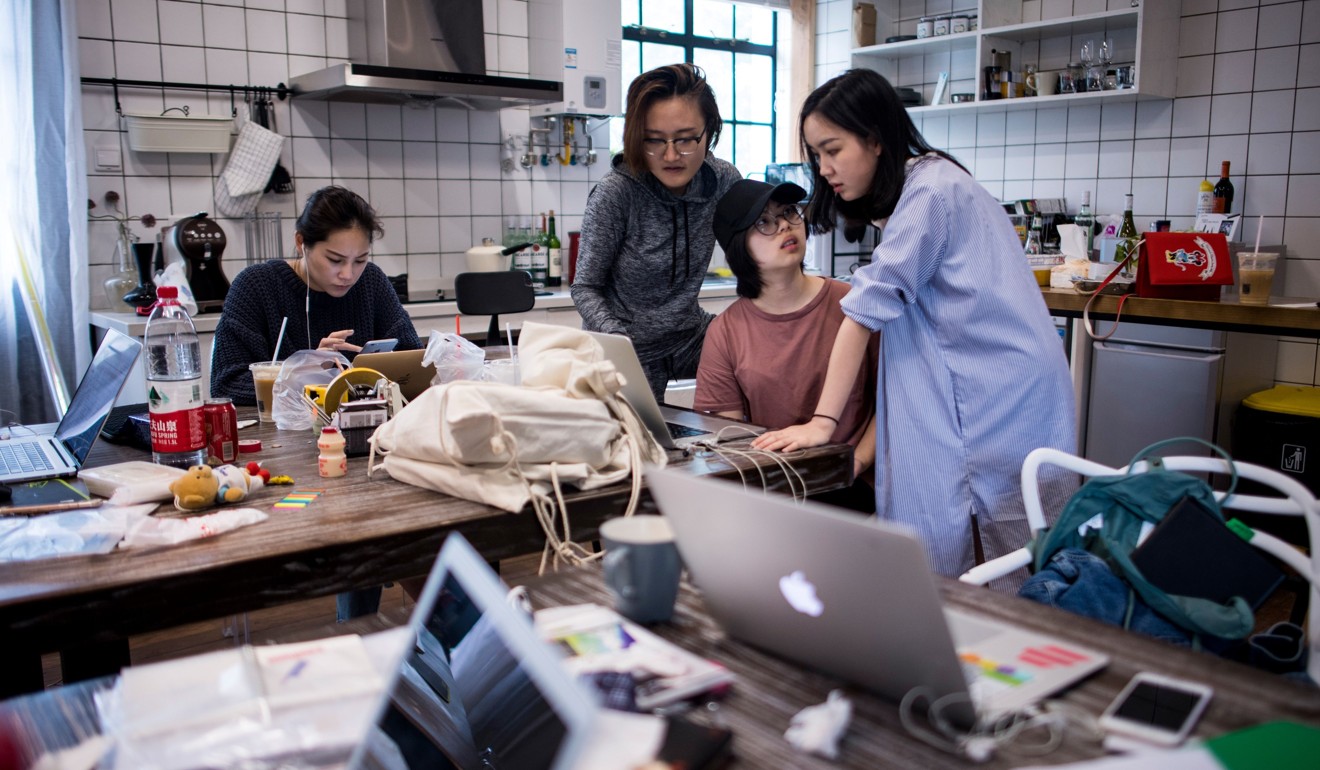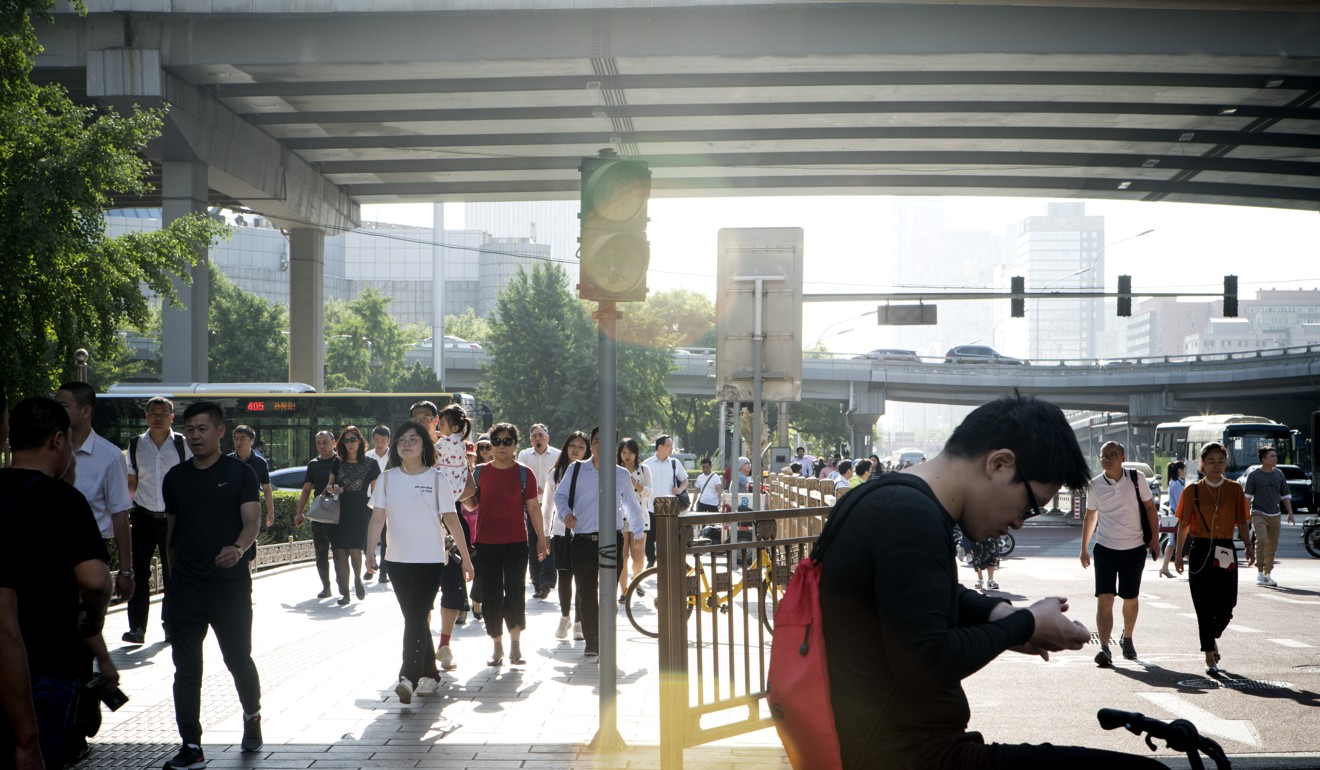
Winter is coming for China’s private equity as market rout slashes start-up firms’ valuations
- Fresh cash raised by PEs and VCs plunge more than 70 per cent in China in the first nine months, as the state cracked down on debt
- Five years of funding frenzy has come to a halt, as froth was squeezed out of the bubbly market
Private equity funds, venture capitalists and angel investors are bracing themselves for a harsh winter as China’s trade stand-off with the US threatens to bring investment in emerging technology start-ups to a standstill, and drag economic growth back to its slowest pace in a decade.
Money raised by Chinese PE funds and VC firms plunged 72 per cent to US$60.2 billion in the first nine months of 2018 from the same period last year, halting five consecutive years of growth, according to the latest data from China Ventures, which compiles data on the industry.
“The froth is being squeezed from a bubbly market,” said Zhou Wei, founder and chief executive officer of a fund that mainly invests its US$510 million of capital in early-stage companies in technology, media and telecommunications. “Many smaller funds or start-ups could die.”
The funding freeze could not have come at a worse time for China’s start-ups, which have languished for the past handful of years as banks’ least preferred – and in most cases, simply unqualified – borrowers.
The froth is being squeezed from a bubbly market. Many smaller funds or start-ups could die
That reluctance had provided fertile ground for PE/VC funds to blossom, unleashing billions of dollars of capital for thousands of start-ups that have fundamentally altered the way Chinese consumers shop, travel, read and spend their leisure time.
The number of Chinese-registered PE/VC funds increased eightfold while the amount of capital under management increased fivefold to 8.34 trillion yuan (US$1.2 trillion) by the end of September, from three and half years earlier, according to the Asset Management Association of China, an industry guild.

Start-up valuations soared so quickly that PE fund managers joked that unicorns were running amok on the streets and hutongs of Beijing.
As US President Donald Trump fired the first salvo of his trade offensive with China this year, stock benchmarks declined in Shanghai and Shenzhen, sending the world’s second-largest capital market into a tailspin.
By November 2 , Shanghai’s Composite Index had fallen 20 per cent this year, making it the second-biggest loser out of 94 primary benchmarks tracked by Bloomberg. Only Istanbul’s main stock indexes performed worse. Hong Kong’s Hang Seng Index was the 10th-biggest decliner, losing 15 per cent in the same period.
The market rout tripped up many companies that had pledged their stocks as collateral for loans, forcing their creditors to sell the equities to cover their margins, resulting in a downward spiral in prices.
It also added to the complexity of exiting through initial public offerings (IPO), further damping the confidence and risk appetite of investors in PE/VCs, said Gu Zhipeng, chief executive officer of JD Capital, an investor in pharmaceuticals and agricultural businesses, whose partners include German heavyweight insurer Allianz and Singapore’s Temasek Holdings.
“Even though the government has sent repeated signals of support to the private sector, and the overall policy is headed in the right direction, the actual implementation usually leaves private companies with less bank financing than state-owned enterprises,” Gu said.

Valuations of start-ups have fallen from their lofty heights as a result, by as much as 50 per cent in some cases, said Jiang Xiaodong, managing partner of Shanghai’s Long Hill Capital Management, which invests in high-growth technology and health care. “You need to raise money as quickly as you can in a sustainable way. Everybody needs to work harder and smarter.”
Beijing has announced a flurry of fresh measures to ease the funding strain, to restore market and economic confidence.
The State Council said earlier last month that it would support bond financing for private firms, with The People’s Bank of China (PBOC) increasing its re-lending and re-discounting quota by 150 billion yuan, for instance.
Also last month, 11 domestic securities firms then agreed to plough in 21 billion yuan to participate in a government-backed asset management scheme, which will serve as a de facto bailout fund for listed companies in financial distress – a move aimed at solving an imminent liquidity crisis for firms whose pledged share accounts face blow-up risks as share prices tumble.
You need to raise money as quickly as you can in a sustainable way. Everybody needs to work harder and smarter
The China Securities Regulatory Commission (CSRC) announced that it would accelerate approvals of second IPO requests, if a firm’s first application was rejected, as long as restructuring plans were put in place. The CSRC also said it will encourage private equity funds to buy shares in public companies and participate in any revamps – moves seen as efforts to deepen the reform and liberalisation of China’s capital market.
“It’s not enough [any more] to exit only through mergers and acquisition or management buyout,” said Zhou Wei, founder of China Creation Ventures.
Some PE and VC investors are hoping these latest financial lifelines for private enterprises can also reach start-ups.
The funding freeze, however, is likely to see the demise of many whose very business models require billions in cash-burn to grow market share.
It took a mere two years for China’s bicycle-sharing industry to peak from a standing start, and then go bust, in the process burning through an estimated US$2 billion in capital. Of the 40 companies that thrived at the industry’s height in 2017, three survivors remain.
Family funds and amateur investors who lack the financial discipline to discern sound investments from trendy ideas, are likely also to be thumped.
“Money may concentrate in stronger and highly specialised funds,” said Creation Venture’s founder Zhou. “This creates a healthier market with more exit opportunities for PE and VCs, which can facilitate capital flow within the sector and also encourage new capital to enter the sector.”
The CSRC’s recent announcement to accelerate IPO approvals also helps alleviate the “exit” issue.
But whether the support measures can have a lasting impact on the financial market remains to be seen, he added, leaving some VCs with more conservative views.
“I do not think we will see any immediate impact on fundraising for PE funds. It is too soon to tell it [the policy] has made it easier for start-ups or private enterprises to raise money,” added Jiang Xiaodong, managing partner of Long Hill Capital, whose venture capital firm invests in high growth Chinese technology and health care companies.
“The trade war is still there, so let’s wait and see. It is a tough environment, so everybody needs to work harder and smarter.”
Zhou expects weaker funds and start-ups to be “eliminated” as the environment becomes harsher, but he also sees some merits in that.
“The [entrepreneurial financing] sector was unusually hot for the past three to four years,” he said. “There was much speculative hot money in the sector, and some unqualified entrepreneurs also got some to start their businesses. This actually messed up the sector. Now it’s survival of the fittest.”


